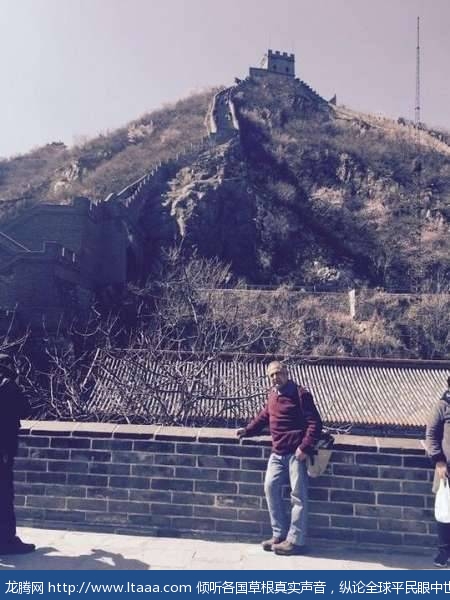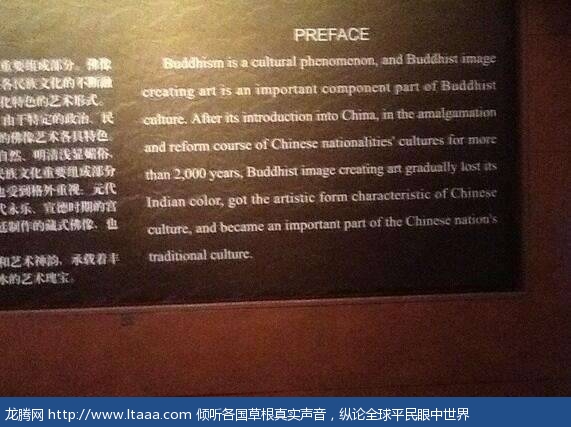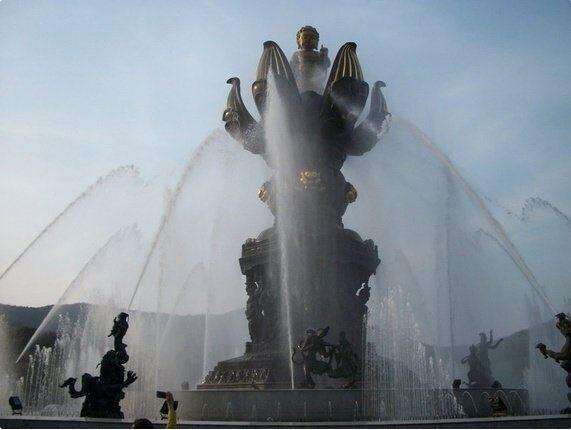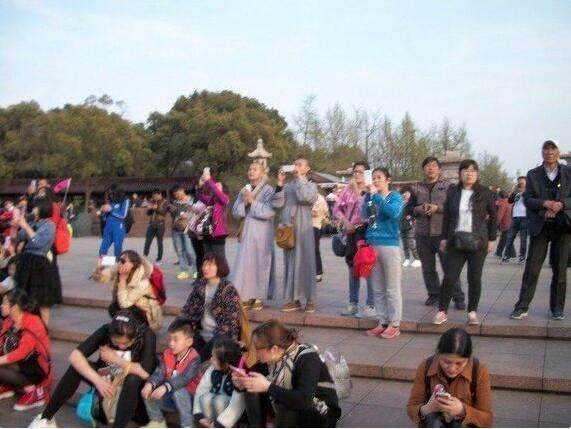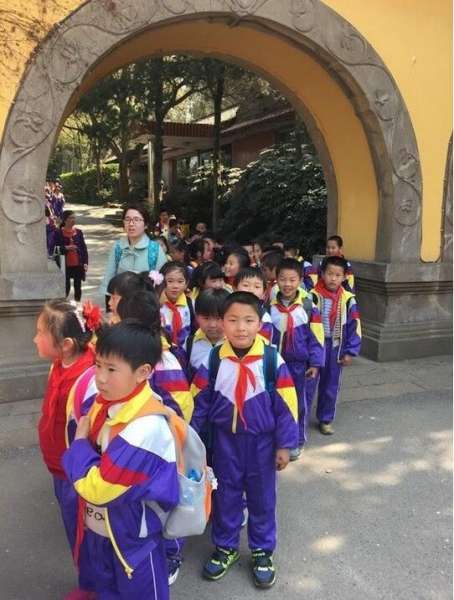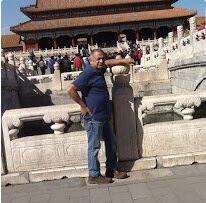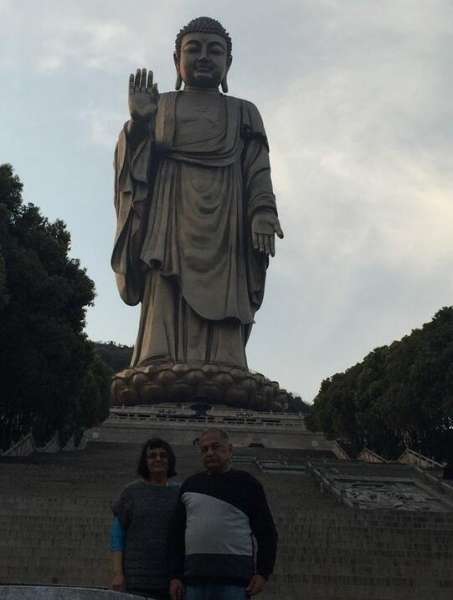为什么其他穷国不能复制中国的经济模式? [美国媒体]
中国直到最近之前一直是一个贫穷的第三世界国家,为什么其他穷国不能复制其经济模式?美国网友:我对中国非常着迷,非常美丽的国家,文化和他们的智慧。尝试将这个实力与世界上最古老和最伟大的文明之一相匹配,你需要中国人来落实这个好点子,否则他们会成为留在书里的蓝图:这只是我的观点......
China, having been an impoverished Third World country until recently, has developed, why can't other poor countries copy its economic model?
中国直到最近之前一直是一个贫穷的第三世界国家,为什么其他穷国不能复制其经济模式?
Austin Fagbade, From the Third World of the Third World
Written 3h ago
Austin Fagbade,来自第三世界的第三世界
National Cohesion
民族凝聚力
China Has Always Had More in Common With Developed Nations
中国一直与发达国家有更多的共同点
To put it simply and briefly the only reason China has been a poor country for so long was because of the Age of Humiliation and subsequent pre-Xiaoping economics or the fact they were hard line Communists for so long. I posit therefore that if China didn’t go through the early economic experiments of the Communist party where she is today she would have been in the 70s.
简而言之,中国这么长时间以来一直是一个穷国的唯一原因是因为耻辱的时代和随后的前小平经济,或者事实是长久以来他们共产主义的强硬立场。我因此假设,如果中国没有经过中国共产党的早期经济实验,今天她将是在70年代。
So now permit me to rephrase your question to What do China and Other Major Economies Do Right that Nigeria and Other Third World Economies Don’t? and the answer to that is national cohesion.
所以现在请允许我把你的问题改为:中国和其他主要经济体做得正确,而尼日利亚和其他第三世界经济体为什么不是? 答案是民族凝聚力。
What National Cohesion Entails And How it Develops Nations
民族凝聚力需要什么以及它如何发展国家
To break it down and make it less vague, we can produce two lists. The first will contain characteristics of a diverse group of progressive economies and the other possessing characteristics of correspondingly diverse developing ones.
为了分解它并使它看起来不那么模糊,我们可以列两个表。第一个将包括不同先进经济体的特征,另一个具有相应的不同发展中经济体的特征。
The first list of countries shall be Japan, South Korea, Sweden, Uruguay and the United States and we shall compare them to China.
第一个国家列表应是日本,韩国,瑞典,乌拉圭和美国,我们将它们与中国进行比较。
Relatively Homogeneous Populations- China is over 90 percent Han. Applicable.
相对同质的人口 - 中国是超过90%的汉族。 适用。
Upheld National Ideals e.g.transparency, world class workmanship, democracy - China’s is strength and was historically communism. Applicable.
维护国家理想,例如透明度,、世界一流的工艺、民主——中国是有力量的,是历史上的共产主义。 适用。
These two in combination create an atmosphere where corruption is frowned upon and in which the nation can mobilise its population to maximise its wealth and standard of living all in a setting of peace.
这两者结合在一起创造了一个气氛,腐败被淹没在其中,国家可以动员其人民在和平的环境中最大化其财富和生活水平。
The second list of countries shall be Nigeria, to a large extent India, Russia, Paraguay and Jordan and we shall compare them to China.
第二个国家列表应该是尼日利亚,在很大程度上是印度,俄罗斯,巴拉圭和约旦,我们将它们与中国进行比较。
Populations: Most Populations in this lists are not homogeneous- Chinese language and culture preponderant among even non Han minorities. Inapplicable.
人口:这个名单中的大多数人不是同质的 ——中国的语言和文化在非汉族民族中占压倒性优势。不适用。
Ideals: These countries lack a pursued national mission- Most of these countries are economically dependent on raw material export, do not pride industry, exhibit rampant corruption, most of these countries lack a definite power hand-down system, and most of these countries lack a set down national goal. Inapplicable.
理想:这些国家缺乏追求国家使命。这些国家中的大多数在经济上依赖原材料出口,没有引以为傲的行业,表现出猖獗的腐败,这些国家中的大多数缺乏明确的权力交接系统,并且大多缺乏制定国家目标。不适用。
The lack of these two create an atmosphere where corruption thrives ,where much of the population is largely unsympathetic to the state and where peace is lacking, all of which stem economic growth.
缺乏这两者创造了腐败兴盛的气氛,其中大多数人口对国家是冷漠的状态,缺乏和平,所有的这些都阻碍了经济增长。
In all, China has and has had more in common with major world economies for centuries and the reason Third World economies cannot easily emulate her and the likes of South Korea is that they lack the settings China and developed nations possess and so lack the means to develop beyond their current states until they do.
总而言之,中国与世界主要经济体共同存在了几个世纪,第三世界经济体无法轻易地效仿她,例如韩国,它们缺乏中国和发达国家所拥有的环境,因此缺乏手段来发展超越他们目前的状态直到他们能做到。
——————————————————————————————————————————
Jerald Siah, High School Student in Singapore
Written Aug 14
Jerald Siah,新加坡的高中生
Alright, before we actually attempt to answer this question, let us take a look at the Chinese Economic Model or what is otherwise another term for the Beijing Consensus as coined by the economist Joshua Cooper Ramo. It is a term used to refer to the political and especially economic policies of China that started after Mao Zedong died and Deng Xiaoping took over in 1976 and these policies are thought to have contributed greatly to the rapid economic development in China from 1976 to 1996.
好吧,在我们实际尝试回答这个问题之前,让我们来看看中国经济模式或者另一个经济学家乔舒亚•库珀所创造的另一个术语 北京共识。 这是一个用来指中国在毛泽东去世后和邓小平于1976年接管之后开始的政治特别是经济政策的术语,这些政策被认为对1976年至1996年中国经济的快速发展作出了重大贡献。
But what exactly is this Beijing Consensus? It is a model that is characterised by policies designed to replace trust in the free market to catalyse economic growth with stronger state intervention in capitalism and the market, and an absence of political freedom with the strong central role of the Chinese Communist Party in China.
但这个北京共识究竟是什么?它是一种模式,其特征在于政策旨在取代对自由市场的信任,促进经济增长,加强国家对资本主义和市场的干预,和一个缺乏政治自由在中国起着核心作用的中国共产党。
After Mao Zedong died, economic reforms that introduced market principles started in 1978 and were carried out in two stages. The first stage occured in the late 1970s and carried on into the early 1980s and involved the decollectivisation of agriculture, opening up to foreign investment and permission for entrepreneurs to start their own businesses though most industry remained state-owned. A series of Special Economic Zones for foreign investment were created that were relatively free of the bureaucratic regulations and interventions that hampered economic growth and these regions eventually became engines of growth for the national economy.
毛泽东去世后,引入市场原则的经济改革始于1978年,分两个阶段进行。 第一阶段发生在20世纪70年代后期一直持续到 80年代初期,涉及农业的去集体化,开放了外国投资,并允许企业家创办自己的企业,虽然大多数工业仍然是国有的。建立了一系列外国投资的特别经济区,这些区域相对没有妨碍经济增长的官僚规则和干预,这些区域最终成为国民经济增长的引擎。
The second stage of reform took place from the late 1980s to the 1990s and involved the privatisation of most state-owned industries and the lifting of price controls, protectionist policies and market regulations though state monopoly was still retained in certain sectors such as banking and petroleum. State control over provinces was decentralised and local provincial leaders were hence able to experiment with ways to increase economic growth and privatize the state sector. The Shanghai Stock Exchange was reopened after it had been closed by Mao Zedong four decades ago and the private sector grew remarkably, accounting for as much as 70% of China’s GDP by 2005.
第二阶段的改革是从20世纪80年代末到90年代发生的,涉及大多数国有工业的私有化,取消价格控制、保护主义政策和市场规则,尽管国家垄断仍然保留在某些部门,如银行和石油 。 国家对各省的控制权已下放,地方省级领导人因此能够试行增加经济增长和私有化国有部门的方法。上海证券交易所在四十年前被毛泽东关闭后重新开业,私营部门明显增长,到2005年占中国GDP的70%。
With the Beijing Consensus, extraordinary economic growth occured in China. China used to have one of the most advanced and developed economy in the world prior to the seventeenth century before it stagnated in the sixteenth century. It then declined in the nineteenth and twentieth century due to external factors such as western influences in China, and ineffective administration and corruption under the Qing Dynasty and the KMT. After that it was the Second World War and the Chinese Civil War which were bad for the economy, then it was the Great Leap Forward and the Cultural Revolution which were absolutely disastrous for the economy and legitimate economic reform only began after Mao died and Deng Xiaoping regained political power over China. With Deng Xiaoping and the economic reforms he introduced, unprecedented economic growth occured from 1978 to 2013 with the economy growing by around 10% every year. Rural poverty has been greatly reduced and income inequality is comparable to that of the Western states with the Gini coefficient in China at 0.45.
随着北京共识,中国出现了非凡的经济增长。在十七世纪之前,中国曾经是世界上最先进和最发达的经济体之一,在十六世纪停滞不前。然后在十九世纪和二十世纪,由于外部因素而逐渐衰落,例如在中国受西方的影响,以及清朝和国民党统治下的无效政府管理。之后是对经济有害的第二次世界大战和中国内战,然后是对经济绝对灾难性损害的大跃进和文革,合法的经济改革只有在毛去世和邓小平恢复政治权利后才开始。随着邓小平和他引进的经济改革,从1978年到2013年,出现了前所未有的经济增长,每年增长约10%。农村贫困已大大减少,收入不平等与西方国家相当,中国的基尼系数为0.45。
(基尼系数,意大利经济学家基尼(CorradoGini,1884-1965)于1912年提出,是国际上用来综合考察居民内部收入分配差异状况的一个重要分析指标。它是一个比值,数值在0和1之间。基尼指数的数值越低,表明财富在社会成员之间的分配越均匀。一般发达国家的基尼指数在0.24到0.36之间。)
Let us now take a look at what exactly enabled this Beijing Consensus or the Chinese Economic Model to have been so effective in bringing about such rapid economic development in China.
现在让我们看看究竟是什么使这个北京共识或中国经济模式实现中国如此有效的在经济快速发展。
Unlike several emerging markets around the world, economic growth in China had been driven mainly by exports dependent upon the free markets in the western world. Such exports include automobiles and electronics where the cost to manufacture such products are much lower in China. And it was the demand for labour in all these manpower-intensive manufacturing industries that were responsible for depressing the unemployment rates in China. Unlike China, most other emerging market economies are based on exports of agricultural commodities which are the sort of products that the US and Europe are able to manufacture domestically without having to turn to foreign imports to meet local demand.
与世界各地的几个新兴市场不同,中国的经济增长主要是受西方世界自由市场的出口驱动。 这种出口包括汽车和电子产品,在中国制造这种产品的成本要低得多。 所有这些人力密集制造业的劳工需求,都是导致中国失业率下降的原因。 与中国不同,大多数其他新兴市场经济体是基于农产品出口,美国和欧洲在国内能够生产而无需求助于外国进口来满足当地的需求。
Such rapid economic development in China is also partly due to the sacrifice of democracy and freedom to speech that had been made by the people in exchange for effective administration by the Chinese Government. Instead of organising regular democratic elections to determine the party and people in charge, China makes use of a Confucian principle known as the “Mandate to Rule” which states that the party and people in charge are put in their position only because of their ability to bring about positive change to the people and that the party and these people can remain in charge only if negative setbacks are avoided, otherwise the people and parties in charge will be said to have lost their mandate to rule and will be overthrown by the people to be replaced by another more efficient ruler. Such an ideology has been practiced in China since the Imperial Dynasties until now and it has mainly worked for the people too as a meritocratic system. Hence, as the CCP does not have to worry about being ousted with regular democratic elections, they were able to implement long-term policies, some of which were unpopular among the people yet essential to economic reform in China. Such an ideology does not exist in other emerging market countries and active resistance can be expected when democracy is abolished in favour of more effective administrations.
中国这样快速的经济发展一部分也是由于人民牺牲了民主和言论自由,以换取中国政府的有效管理。中国不是组织定期的民主选举来决定党和执政者,而是利用一种被称为“执政命令”的儒家原则,规定党和当权者只是因为他们有能力给人民带来积极的变化,只有避免负面的挫折,党和这些人才能继续执政,否则这些人和执政党将会被指责已经失去了执政的授权,将被人民推翻,取而代之的是另一个更高效的统治者。这种意识形态在中国从帝国王朝到现在一直被实行,主要是作为精英统治系统为人民效力。因此,中共不用担心被常规的民主选举推翻,他们能够实施长期政策,其中一些政策在人们中不受欢迎,但对中国的经济改革至关重要。这种意识形态在其他新兴市场国家并不存在,当民主被取消以支持更有效的行政管理时,可以期待积极的抵制。
Having state control over most industries will also inevitably result in widespread corruption in most cases if anti-corruption policies are not actively implemented and enforced by the government. Corruption is now a serious problem in China and the current president Xi Jinping is facing problems trying to stamp it out. An economic system with heavy state intervention and control will also dislocate markets and misplace assets which hinders sustained economic growth. They also produce serious negative externalities and severe economic dead weight. China is now facing problems with heavy debts in its financial sector and a property bubble that could burst any time.
如果反腐败政策没有得到政府的积极落实和执行,那么国家控制的大多数行业也将不可避免地导致大多数情况下的腐败。腐败现在是中国的一个严重问题,而现任的习近平主席面临着试图消灭它的问题。一个拥有大量国家干预和控制权的经济体系也会使市场错位,阻碍持续经济增长。它们还产生了严重的负外部性和严重的经济无谓损失。(这里虽然少了个loss,但是根据文意推测应该是指这个概念)。中国现在面临金融业的沉重债务和可能随时爆发的房地产泡沫的问题。
(所谓负外部性,也称外部成本或外部经济,是指一个人的行为或企业的行为影响了其他人或企业,使之支付了额外的成本费用,但后者又无法获得相应补偿的现象。或是对交易双方之外的第三者所带来的未在价格中得以反映的成本费用。
无谓损失(deadweight loss)又为福利净损失(welfare loss),是指由于市场未处于最优运行状态而引起的社会成本, 也就是当偏离竞争均衡时, 所损失的消费者剩余和生产者剩余。)
In conclusion, other emerging market economies can consider imitating China and her economic policies but the respective governments in those countries have to exercise common sense and a sense of realism to realise which policies will be practical and feasible for the culture and situation of their country.
总之,其他新兴市场经济体可以考虑模仿中国及其经济政策,但这些国家的政府必须具有常识和现实主义意识,以明白哪些政策对其国家的文化和国情是切实可行的。
Thanks for the A2A! :)
谢邀!
If you liked my answer do feel free to leave an upvote below — I'm also open to any comments or criticism you have too! :)
如果你喜欢我的答案,请随时点赞——-我也欢迎任何评论或批评! :)
——————————————————————————————————————————
Sam Arora, I am very fascinated by China,very beautiful country, culture and their wisdom
Updated Oct 18 •
Sam Arora,我对中国非常着迷,非常美丽的国家,文化和他们的智慧
Try to match this prowess to one of oldest and greatest civilization in world, you need Chinese to implement your bright ideas. Otherwise they will stay in the books as blue print: this is only my view.
尝试将这个实力与世界上最古老和最伟大的文明之一相匹配,你需要中国人来落实这个好点子,否则他们会成为留在书里的蓝图:这只是我的观点。
Disclaimer: I am not an expert on the subject, I will not quote any statistics, my responses are based on my observations. I am Canadian citizen from Indian origin, soon in a few years I be here for 50 years. I have had lot of interactions with Chinese people from all over the world.
免责声明:我不是这方面的专家,我不会引用任何统计数据,我的回答是基于我的观察。 我是来自印度裔的加拿大公民,很快在几年内我来这已有50年了。 我与来自世界各地的中国人有很多交往。
My qualifications to respond to this question: First I was born in India part grew up in India, and then moved to Canada. Therefore I have somewhat good understanding of my birth mother country. Also I have just come back from China, and going back again in November for much longer trip.
我的资历来回应这个问题: 首先我出生在印度部分时间在印度长大,然后搬到加拿大。因此,我对我的出生母亲国有点了解。 我也刚刚从中国回来,并且11月会再回去进行更长的旅行。
My thoughts are as follows:
我的想法如下:
You cannot transfer the culture of China/Chinese to the other improvised country:
你不能将中国/中国人的文化转移到其他临时的国家:
You may transfer any system from any successful country but you cannot transfer the culture of the successful country. Transferring the systems does not mean that they will work unless people/culture of that recipient country is willing to adopt to the Chinese systems. For example India and China, are neighbors, but it is known fact, and most of the Chinese have absolutely have no interest in India. There are lot of root causes for it and in the end there are no meaningful relationship of mutual exchange of ideas, transfer of technology and joint projects………
你可以从任何成功的国家转移任何系统,但你不能转移成功国家的文化。转移系统并不意味着他们将会运行,除非该接收国的人民/文化愿意接受中国系统。举例,印度和中国是邻居,但众所周知的事实是,大多数的中国人完全对印度没有兴趣。有很多根本原因,最终导致他们没有 有意义的相互交流、技术转让和联合项目的关系.........
This how people in the third world think about China, this was the question on Quora which I have already answered with more than 42000 views.
这是第三世界的人如何看待中国,这是我在Quora上超过42000次点击回答的问题 。
“Why do people in many developing countries still think Chinese people are very poor?”
“为什么许多发展中国家的人还认为中国人民非常贫穷?”
People in the developing countries do not realize the length/breadth/and height of Chinese success, they still think China is still country of opium addicts.
发展中国家的人们没有意识到中国成功的长度/广度/和高度,他们仍然认为中国还是鸦片成瘾者的国家。
Think again, and start listen and copying before it is too late.
再想想,开始倾听和复制以免为时过晚。
China and Chinese are class in themselves.
中国和中国人是独一无二的。
I am not a historian, but I know one thing per sure, Chinese made mistakes and learned from it. Chinese learned very hard lesson as the outcome of Anglo Chinese war, losing Hong Kong, and tremendous amount of concessions and losing too much money to USA, treaty with France, Opium wars, famines, Mongolian and Manchurian regimes and modern day injustice and torture, killing and slaughter, they all took on the chin, and rose like a phoenix, from ashes. Only Chinese can do it, you can put the system in place but where would you bring Chinese spirit of resilience to suffer, survive and thrive. I do not believe any nation can match that in the world.
我不是一个历史学家,但我很确定一件事情,中国人犯了错误,并从中吸取教训。中国学到了非常艰难的教训,作为英国中国战争的结果,失去了香港,大量的让步和失去太多的钱给了美国,与法国谈判,鸦片战争,饥荒,蒙古和满洲政权,近代的不公正和酷刑、杀戮和屠杀,他们都忍气吞声,然后像凤凰涅槃,浴火重生。只有中国人可以做到,你可以把系统设置到位,但你从哪带来中国的经历痛苦、生存和繁荣的坚韧精神。 我不相信世界上的哪一个国家能与之匹敌。
Most of the third world countries have no money:
大多数第三世界国家没有钱:
China/Chinese have the financial muscle, even if you put Chinese system in place in the third world countries they have no money, they are already living on the donations and loans. To implement you need money and economic might.
中国/中国人有金融的力量,即使你把中国制度放在第三世界国家,他们也没有钱,他们已经生活在捐款和贷款中了。要落实它你需要钱和经济实力。
This is a myth that most Chinese are atheist :
大多数中国人是无神论者,这是一个误区:
Chinese may not go to church/temple/.. regularly, they may not be killing each other on the name of God/religion but in my view it is also a myth that most Chinese are atheist. They are not, most of them have found a real God in their heart, as follows.
中国人可能不会定期去教堂/寺庙/ ..,他们可能不会以上帝/宗教的名义彼此杀害,但在我看来,认为大多数中国人是无神论者,这是一个误区。他们不是这样,他们大多数已经在心中找到了真正的上帝,如下。
Most of them are hard working, patriotic, jealously free, almost free/or very low crime country, mind their own business, love and care for the family, elders, children and care for the aging parents.
他们大多数努力工作,爱国,向往自由,几乎自由/或犯罪极低的国家,管好自己的事,爱护和关心家庭、老人、小孩并且照顾年迈的父母。
Most likely new generation does not know it but I being from Indian heritage see tremendous amount of Buddhist impact in day to day life, culture and philosophy of Chinese. In fact Taoism and Confucianism are other two great influences guiding day to day life, including Buddhism.
可能新的一代不知道它,但是我看到来自印度遗产佛教大量的影响在中国的日常生活、文化和哲学。事实上,道教和儒家是指导日常生活的另外两个重大影响,包括佛教。
Source Shanghai/Beijing Museum.
来源:上海/北京博物馆
Picture taken at Ling Shan Buddhist monastery of “ bathing of baby Lord Buddha”
图片为灵山寺院的“幼童如来佛的沐浴”
Bathing of baby Lord Buddha, these Chinese had reverence for the Lord which will any religious fanatic to shame.
幼童如来佛的沐浴,这些中国人如此的敬畏,将会使任何宗教狂热分子羞愧。
Chinese have very long unbroken continuous history:
中国有着悠久的连续历史:
Chinese civilization is one the longest unbroken civilization in the world, they are very proud to protect it, people who could make the longest wall in the world which you could see from the moon, third world countries may not have that kind of spirits and discipline.
中国文明是世界上最悠久的完整文明,他们为保护它而感到自豪,人们制作出可以从月球上看到的最长的城墙,第三世界国家可能没有那种精神和纪律。
Chinese may not be homogeneous society but it is very peaceful
中国人可能不是同族社会,但是非常和平
Chinese are not homogeneous society, there are 56 known ethnic groups and minorities but relatively they coexist peaceful, as compared to the of the third world.
中国不是同质社会,有56个已知的族群和少数民族,但与第三世界相比,相对的他们能和平共处。
China is not improvised contry now, it has surpassed some of the highest standards in the world.
中国现在不是一个临时国家,它已经超越了世界上的一些最高标准。
To match china’s prowess in infra structure, it may take for ever in some third world countries. They can dream but that dream never be fulfilled unless God the Almighty comes to the earth.
为了赶上中国在基础设施方面的实力,某些第三世界国家可能需要永远。 他们可以梦想,但梦永远不会实现,除非万能的上帝来到地球。
Chinese do not waste too much time in nuisance of life.
中国人不会在生活中的麻烦事浪费太多时间。
I was in one third world country during the month of December, by the time all functions were over my file stayed on rotted on the tables of bureaucrats.
我12月份期间呆在一个第三世界国家,那时候我的文件的所有功能都腐烂在官僚的桌子上。
Corruption:
腐败:
Chinese/China may not be washed in holy water, but I have had extremely bitter experience in one so the called third world countries and I do not think, this is the right form to write dirt, I almost vowed that was the worst I have had ever seen. With my first hand experience in one of the third world countries, ruthlessness, to cut your limb as they say for their meals, makes China and Chinese washed in holy water. In my view only Heavenly intervention can save at least that country, if there is God, His work is cut for Him, where humanity has gone so low, that even God be ashamed of His kingdom, what He had created and what has become of His divine creation,
中国/中国可能不会在圣水中洗涤,但在一个所谓的第三世界国家我有一个非常痛苦的经验,我不认为这是写肮脏东西的正确形式,我可以发誓这是我见过的最严重的一次。根据我在一个第三世界国家的一手资料,冷酷无情的、切断你的肢体,因为他们说为了他们的饭碗,使得中国和中国人在圣水中洗涤。在我看来,只有天上的干预可以拯救那个国家,如果有上帝,他的工作就是为他减少,人类已经如此之低,甚至上帝为他的王国感到羞耻,他创造了什么,他的神圣创造发生了什么。
(这一段我云里雾里的,翻得很是不顺畅,丫的不是要说腐败吗。。。怎么我就看不懂啊摔!!!)
Chinese systems will not do anything there unless He himself comes and cleans up the mess. It will be a hard job for Him too, but He could try.
中国系统将不会做任何事,除非他自己来清理残局。这对他来说将是一个艰难的工作,但是他可以试一试。
Relatively very low crime rate:
相对较低的犯罪率:
I honestly believe China is relatively very low crime rate country, I have seen it with own eyes young girls/women walking fearless on the roads in the middle of the night to work or home or travelling in the public transportation. Streets of Beijing and Shanghai, with 20 million people each, most likely the safest on the earth. My friend in Shanghai confirmed : Sam I can walk with my young daughter in the middle of the night in Shanghai without fear.
老实说,我相信中国是相对犯罪率很低的国家,我用自己的眼睛看到,年轻女孩/女人在半夜无所畏惧的走在路上,去上班或者回家或使用公共交通旅行。北京和上海的街道,有2000万人,很可能是世界上最安全的。我在上海的朋友证实:Sam我可以和我的年轻女儿半夜在上海无忧无虑地散步。
One of the best public transport system in the world:
世界上最好的公共交通系统之一:
Have a look on Shanghai subway systems and their net work of subway lines, and try to implement even one such line in any of the third world country, may be Almighty can do it, copying of blue print will not do much, yes with God’s intervention may achieve in other third world country.
看看在上海地铁线路的系统及其网络的工作方式,然后尝试在任何一个第三世界国家里实施这样的一条路线,也许万能的神能做到,复制的蓝图作用不大,是的有神的帮助也许在其他第三世界国家能实现。
Chinese are not show off, they live within their means and are huge savers.
中国人不炫耀,他们量入为出,是巨大的储户。
Based on my experience and my Chinese connections with them in various capacities most of the Chinese do not waste a penny, they are not show off and most of them are big savers. I have personal knowledge of at least one third world country, at least one part is sinking in drugs, alcohol, frauds, bank loan defaults (usually to buy things on loan for show off, with depreciating values), selling ancestral land for luxury goods to catch with Joneses. Will Chinese systems work there? may when God decides to come on the earth (in my view).
根据我的经验和我与各种能力的中国人的联系,大多数中国人不会浪费一分钱。他们不炫耀,而且大多数都是大储户。我有至少一个关于第三世界国家的个人认知,至少一个部分正沉溺于毒品,酒精,欺诈,银行贷款违约(通常贷款购买东西来炫耀,并且会贬值)为了奢侈品出售祖传的土地与人攀比。中国系统会在那里运行吗?也许当上帝决定来地球时(在我看来)。
Chinese education is most likely the most intense :
中国教育可能是最强烈的:
Chinese pay prime and main attention on the education and it is not joke to get a place in the university, they mean business.
中国人将主要的精力放在教育上,为了在大学占有一席之地这不是一个玩笑。他们是玩真的。
Chinese family unit is very strong, joint family is norm,
中国家庭单位非常强,数代同堂是标准。
I know Chinese due my very close connection with them, mostly they live in harmony, parents grand parents are respected and children are loved. They do not live for one generation they believe in passing on the legacy generation to generation. Grand kids are apple of the eyes for grand parents.
我知道中国人是因为我与他们的密切联系,大多数他们和谐共处,父母祖父母被尊重,孩子们被爱护。他们不是一代的生活,他们相信代代传承。孙子是祖父母眼中的小苹果。
There is saying : Family who eats together stays together. kids are loved and elders are respected.
俗话说:在一起用餐的家庭,将永远在一起。尊老爱幼。
Photo taken from Google search:
图片来自谷歌搜索
Chinese are most likely the best students, very curious to learn and are like sponge.
中国就像是最好的学生,非常渴望学习,就像海绵一样。
I dealt with 100 s if not 1000 s of Chinese students at university level, I know they are extremely disciplined respectful and education is their main business. Look at Quora, they ask very intelligent questions, argue respectfully, thank you, they may disagree but never swear, just unbelievable nice behavior there are so many excellent writers on Quora giving free advice to them.
我遇到过100个不然就是1000个大学水平的中国学生(这句话是我理解大概意思的,可能不准),他们非常遵守纪律,教育是他们的主业。看看Quora, 他们有非常聪明的提问,尊敬地讨论,感谢你,他们可能不同意但从不会咒骂,只有令人难以置信的良好的行为,有这么多优秀的答题者在Quora给他们免费的建议。
Here is Chinese are investing heavily, in education, raising healthy and bright children, showing them their proud past and eye for the future, not like most of the third world countries, blowing one another, each other and themselves. And for what……….?
这是中国大举投资的,教育方面、养育健康和开朗的孩子们,向他们展示对过去的自豪和对未来的展望,不像其他大多数的第三世界国家,互相、彼此或自己吹牛。为了什么。。。。?
See the girls have same right as boys………..proudly, nicely and healthy looking kids visiting one of the best museums in the world, Shanghai museum,
看看,女孩和男孩有同样的权利。。。。。看起来自豪、漂亮和健康的孩子们正在参观世界上最好的博物馆之一,上海博物馆。
These kids are visiting a park on a school trip: place Turtle Head Lake
这些孩子正在学校出游中参观公园:乌龟头胡
Chinese are one of the best team players:
中国人是最好的合作伙伴之一:
I have worked with almost all nationalities in the world in Canada, Chinese is most probably, one of the best team players, for them winning of the team is more important than their own individual performance. The simple proof are China Towns in almost every big city in North America. These towns were first may 75 to 100 years were created due language problems, not anymore, now look in Canada, still they developed their own malls, churches and businesses. Simply because they are very social with each other, and food is the center of binding force.
我在加拿大几乎已经与世界上所有国家的人一起工作过,中国人可能是最具有合作精神的人之一,对他们来说,集体的胜利比他们个人的表现更重要。简单的证明就是中国城几乎在北美的每个大城市中。这些城镇一开始可能由于语言问题于75-100年前创建,不再是了,看看现在的加拿大,他们还开发了自己的商场、教堂和生意。皆因他们很会与彼此社交,而食物就是键合力的中心。
Chinese may have differences but they dig into the same rice bowl at the dim sum.
中国人可能有差异,但他们津津有味地吃着同样装点心的饭碗
Chinese dining tables most of them are round, with rotating lazy susan in the center, because they may fight, argue, and want to kill each other (in arguments or discussion) but dim sum table they dig into the same rice bowl, and scoop from the same stir fry bowl.
中国餐桌大部分是圆形的,圆转盘在中心。他们可能打架、争论、或者想要杀了对方(在争论和吵架时)但餐桌上他们吃着同样的饭碗,从同样的菜盘里取食。
This following picture taken from Google Search to explain the point, Chinese team spirits are in their blood for thousands of years, and no one can take from them.
下面这张从谷歌搜索得来的照片可以解释这一点,中国的团队精神在他们的血液中流传了几千年,没有人可以从他们那里拿走。
Chinese are comparatively very patriotic
中国人相对非常爱国
Most of the Chinese I know are in fact very patriotic, they love, respect, cherish and pass on their cultural values comparatively more to their generation than most likely any other nationality.
我知道的大多数中国人实际上是非常爱国的,比起其他国家相对的一代中,他们更加热爱,尊重,珍惜和传递他们的文化价值。
Chinese are in better health:
中国人更健康:
Chinese are relatively better health, in China where ever I went I hardly see any obese Chinese, it is due to their intense hard working life style, balanced life, living within their means, and some are very active in Tai Chi.
中国人的健康状况相对较好,在中国,我几乎看不到任何肥胖的中国人,这是由于他们辛勤的工作生活方式,平衡的生活,量入为出,还有一些人对太极非常积极。
It is only a myth, that Chinese are not innovators, think again:
这只是一个误区说中国人不是创新者,再想想;
When most of the world was living in caves, Chinese invented gun powder, compass and paper, and studying astronomy.
当世界上大多数人居住在洞穴中时,中国人发明了火药,指南针和纸张,并研究天文学。
Today Chinese are sitting on the treasure of thousands years of their own wisdom and most likely they have keys to the most confidential industrial processes and blue prints of industrial wisdom of the world in their lockers.
今天中国正坐在自己的几千年智慧的宝藏上,很可能他们已经有了打开存放着最机密的工业制程以及智能工业世界蓝图的储物柜的钥匙。
Say hello : to my little friend.
跟我的小朋友问好。
A picture taken by the author from the Shanghai museum:
作者从上海博物馆拍的照片:
Conclusion:
结论:
To answer your question in one line: you could bring in the systems but you cannot bring in the Chinese to implement
一句话回答你的问题:你可以引进系统但你没办法引进实施的中国人。
China having been an impoverished third-world country until recently, why can't other poor countries copy its economic model?
中国直到最近之前一直是一个贫穷的第三世界国家,为什么其他穷国不能复制其经济模式?
In my view it is not going to happen, I do not believe anyone can match Chinese prowess and discipline to match this success.
在我看来这是不会发生的, 我不相信任何人可以有中国的实力和纪律,来实现这个成功。
My sincere salute to one of the greatest : Chinese civilization and people :
我真诚的致敬最伟大之一:中国文明和人民:
Author in front of Forbidden City.
作者在紫禁城前面
Grand Buddha of Ling Shan: The largest statue of Lord Buddha in China and most likely in the world.
灵山大佛:可能在中国和世界上最大的如来佛雕像
Author paying respect to Lord Buddha at Grand Buddha of Ling Shan
作者在灵山大佛的如来佛前祭拜
——————————————————————————————————————————
Rodney L'Huillier, Lived and studied in China for 6 years
Updated Aug 25
Rodney L'Huillier, 在中国生活学习了6年
I think it’s a little underhanded to call China a “third world country”, that’s simply unfair. It is a country with a very rich history and a deeply established culture. China had a highly developed society.
我认为把中国称为“第三世界国家”有点卑鄙,这是不公平的。它是一个有着非常丰富的历史和深厚的文化的国家。 中国有一个高度发达的社会。
Many unfortunate circumstances led to harder times, I think you can research some facts about the later stages of the Qing Dynasty, European, Japanese and Russian Invasion and the Cultural revolution to begin to see where things started to get off track…
许多不幸的情况导致艰难的时代,我想你可以研究一些关于清朝,欧洲,日本和俄罗斯入侵和文化革命后期阶段的事实,看看事情是从哪里开始脱离轨道的。。。。
It would seem a pivotal point for the turn around of the welfare and livelihood of the Chinese people was Deng Xiaoping and his relationship with then President Jimmy Carter, and further along with China’s introduction to the world economy and its adoption of sensible policies inline with international norms allowing it to trade, and become a hub for foreign investment.
似乎中国人民的福利和生计转折的一个关键点就是邓小平和他与当时的总统吉米 卡特的关系,并且中国进一步融入世界经济以及它根据允许进行贸易的国际惯例而采用的明智政策,并且成为了外商投资的中心。
China is a little unique in that it has over 1.3 billion people and an single-party regime which allows for speed of progress. Whilst it has successfully made many people massively rich and also brought hundreds of millions into the middle class, it also has its costs. Cost it seems, in terms of national and provincial debt and more importantly the damage that rampant growth has done to the environment and its damaging effects on daily life. Many people may ask, what was better for the soul, traditional Chinese life or the new model of urban life? It would seem, just like the rest of the world, balance is yet to be found.
中国是独一无二的,它有超过13亿的人和一个考虑到进步速度的一党制。虽然它已经成功地使许多人民大量富有,也使得数亿人进入中产阶级,但它也有它的代价。代价似乎在国家和省债务方面,更重要的是,猖獗的增长对环境的损害和其对日常生活的破坏性影响。很多人可能会问,对于灵魂的、传统的中国生活或者新模式城市生活哪一个会更好?看来,就像世界其他地方一样,平衡尚未被发现。
Copy, is perhaps not the correct word to use in this question; perhaps there’s a lot to learn from Beijing’s economic model.
复制,可能不是在这个问题中使用的正确的词; 也许要从北京的经济模式中学习许多。
——————————————————————————————————————————
Gwydion MadawcWilliams, A lot of background reading
Written Aug 13
Gwydion Madawc Williams,阅读了许多背景
China depends onthe unity of purpose imposed by the Communist Party. Only Vietnam has a chanceof succeeding by the same methods. (North Korea has messed up, after beingpromising in the 1960s.)
中国取决于共产党的目标的统一性。 只有越南有机会通过相同的方法成功。 (朝鲜在20世纪60年代承诺之后就搞砸了。)
Note that Chinesegrowth has been continuous since 1949, even though they started out very poorand were still quite poor when Mao died.
注意到中国的增长自1949年以来一直持续,尽管他们开始时非常贫穷,并且在毛泽东死亡时仍然相当贫穷。
——————————————————————————————————————————
Tisho Yanchev
Written Aug 14
Well simply put, they lack political will, and understanding of what to do. It’s not as simple as it may seem, in order to achieve that economic growth and progress, they had to do a lot of good economic policies, they had to instill market principles, create stable government, more or less rule of law, protection of private property and so on. Had it wasn’t for Deng Xiaoping, China would’ve still be a poor country, for the exact same reason all the other poor countries are poor, they had strong centralized and state controlled socialist economy, which simply does not work. It was Deng Xiaoping that had the economic knowledge that this model does not work, and they have to change, but it took political will to do that, they realized that if they want China to be rich and powerful, they had to implement these new changes, even if it means jeopardizing their one party authoritarianism, something most poor countries are not willing to do, either they don’t have the understanding of what needs to be done, they are too arrogant to even copy others, or simply do not acknowledge it is the economic model that is making the difference, even if they do, they lack political will, and the willingness to let go of political power, most of these dictators are perfectly fine with the way things are for them.
好吧简单地说,他们缺乏政治意愿并且懂得要做什么。它不是看起来那么简单,为了实现经济增长和进步,他们必须制定很多好的经济政策,他们必须灌输市场原则,创造稳定的政府,或多或少的法治,保护私人财产等。如果不是邓小平,中国仍然是一个穷国,和所有其他穷国具有同样的原因,他们有很强的中央集权和国家控制的社会主义经济,这根本不起作用。是邓小平有这种经济模式不起作用的经济知识,他们必须改变,但需要政治意愿去这样做,他们意识到,如果他们希望中国富裕强大,他们必须实施这些新的改变,即使这意味着危害他们的一党专制主义。大多数贫穷国家不愿意做某些事,他们也不知道需要做什么,他们太傲慢甚至不愿复制他人,或者根本不承认这是造成差别的经济模式。即便他们做了,他们缺乏政治决心和放弃政治权力的意愿,大多数的独裁者对于他们的事物感觉非常好。
版权声明
我们致力于传递世界各地老百姓最真实、最直接、最详尽的对中国的看法
【版权与免责声明】如发现内容存在版权问题,烦请提供相关信息发邮件,
我们将及时沟通与处理。本站内容除非来源注明五毛网,否则均为网友转载,涉及言论、版权与本站无关。
本文仅代表作者观点,不代表本站立场。
本文来自网络,如有侵权及时联系本网站。
图文文章RECOMMEND
热门文章HOT NEWS
-
1
Why do most people who have a positive view of China have been to ...
- 2
- 3
- 4
- 5
- 6
- 7
- 8
- 9
- 10
推荐文章HOT NEWS
-
1
Why do most people who have a positive view of China have been to ...
- 2
- 3
- 4
- 5
- 6
- 7
- 8
- 9
- 10
